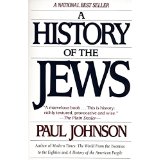[This was first posted in 2013. The author has since moved to another country and we have lost track of him which is unfortunate because it is always interesting to know if he has changed his stand and belief system since he wrote this piece six years ago. Here is the original Introduction:
Sinaites have had running discourses with Christians and Messianics. If you have followed those posts, you will notice that each side never see eye to eye because each argue from differing foundational beliefs based on different scriptural authorities: Sinaites base their discussions only on the Hebrew Scriptures by Jewish translators, while Christians and Messianics base their discussions on the Christian Bible composed of two testaments, the Old and the New by Christian or Messianic translators.
As if it is not difficult enough to have such discussions with Christ-centered believers, here now is a view expressed by a “Quantum Atheist” who accepts neither scriptural authority (Hebrew Bible or Christian Bible) and who does not believe in the existence of a God. We don’t know how we could even begin to have a discussion or if there is any point to it, but because we believe in exposing ourselves and our readers to ALL opinions by serious and sincere Truth-seekers, we post his viewpoint so that readers could begin to understand why there are atheists as well as how this particular Quantum Atheist reasons out his personal convictions. For those who wish to learn more or comment on his views, please go to his website, link given at the end of this post. Letters edited and reformatted for this post.—Admin1.]
—————————————————————
Excerpts from 1st letter:
I am taking a break from work and am looking at Sinai6000. I’m only on the home page so far.
Based on what I know from before though, you’ve made great progress in your studies and I admire your academic pursuit of your subject matter and how far you’ve come. I just have one question:
Have you ever considered starting from scratch? I.e. without the foundational paradigm of monotheism or, for that matter, anything non-secular whatsoever?
In my opinion as another seeker of the truth, like yourself, I find that any study or work based on any premise or within a pre-established paradigm (whether provable or not) will already be beset by bias–which will remain in the final conclusion–thus, your end “truth” may not be objectively truthful.
If you conducted your research and studies without any preconceptions, such as the unquestionable existence of a/the “God”, wouldn’t the validity of your conclusions be that much closer to The Truth we all seek?
I was raised as a Christian and that’s the only reason I used to believe in things unprovable, as well as have faith in them without even thinking of searching for empirical evidence. It was only after I abandoned any preconceptions (including everything even remotely related to what I was told vs. what I witnessed myself) that I began to see a path to the truth. Objectivity is where the search for any truth must begin if that truth is not to be adulterated by preconceptions–subjectivity.
This is just how I see it from the empirical method standpoint, which to this day, is the only proven method for arriving at any kind of acceptable truth. I just feel that with the amount of effort you are putting into this, your foundation should be solid so that your conclusions will not be easily refuted. Allow me to put it this way: Right now, no matter how much research you do and how deep your studies go, all anyone has to say to dispute your findings is, “Since your premise is your personal opinion, your faith, in God, nothing that comes after that foundation has any solidity or validity beyond blind faith.” (Please refer to the parable about the houses built on rock and sand.)
No one more than me would like your efforts to bear only the purest of fruit and your findings to stand up to any sort of inquiry, scientific, religious, or otherwise, and that is why I write this to you. I write, as always, with the utmost sincerity and respect.
DGN
————————————————-
2nd letter:
For the record, since I didn’t get to explain my belief system, I’m what I term a Quantum Atheist.
Quantum Theory (QT) has long pointed at what Eastern Mystics have been saying for over 6000 years–that there IS a “world” that we do not perceive with our 5 senses–at least not always and not fully. I do not believe in any “higher powers” but I do believe that many things that have been neatly boxed (and bastardized) by various religions ARE true. For example, “collective willpower” or whatever one may term it is, I believe, the root of the power of prayer. I.e. when enough people want something badly enough and they expend their energy (which is synergistic) it tends to happen. Science shows that NOTHING is absolute but everything is random probability. String Theory predicts that even walking through walls (or on water) is possible–the chance for it happening is so infinitesimal though, that one would have to attempt to pass through a wall for almost an eternity to succeed.
Thus, with the “power” (read: focused energy expenditure) of the collective will, as was proved by scientific experimentation during the OJ Simpson trial and numerous other experiments, random events can become less random–the “willed” outcome becoming far more probable, vs. 50-50. Thus, for me, the power of prayer does not draw from a Superior Being but from the Superior Consciousness we create when we put our minds to a task with a communal will.
The really scary thing is this: QT predicts that the collective will has, not only the power of probability alteration but creative power as well. Thus, if millions or billions of people believe in, let’s say, a God, then that being will most probably be created and will manifest itself. What’s scary about this, you may ask? Well, the “God” created will be an amalgam of each individual’s beliefs of the creative group. Let me give an example using a current topic of debate. Growing up, I was taught and believed that the God of the Jews and Christians and the God of the Muslims was one being. The God of Abraham was the God of Hagar and Ishmael. It’s in the bible. Each group has always believed that their God was different and that their God was “The One True God”. QT predicts that each group has a good probability of creating (and has probably already created) its own God. And since the three groups are at odds with each other, their Gods will be too. And since “there can be only one”, well, you see how it is scary now, I hope. QT really gives truth to the adage: Be careful what you wish for.
Now some of you may be asking why I am an Atheist if I’ve just shown that there can be Gods. Valid question. I’m an atheist because these Gods we create aren’t true Gods in the sense that we’ve been raised (or converted) to believe. I don’t worship the American Idol that the masses create annually; neither will I worship a “God” that humans created. Worshiping a human creation is the true definition of Idolatry. I believe that there is a strong probability that these “Gods” are there, and active, but I do not believe they are superior beings to be worshipped any more than a Senator, much more powerful than the average citizen, should be worshipped.
This is by no means my complete argument or thesis on these subjects. I am writing full-length essays on all the major topics mentioned above and these will appear here on Sinai6000 as they are completed. My completed and published writing, both fiction and non-fiction can be found here: http://www.smashwords.com/profile/view/lotuseater and at all major eBook retailers. My author web site, dariusnease.com will also come online within the next week or two. Also, feel free to connect with me on Facebook at: http://www.facebook.com/darius.nease.5 . . . or send emails to: darius6nease@gmail.com













